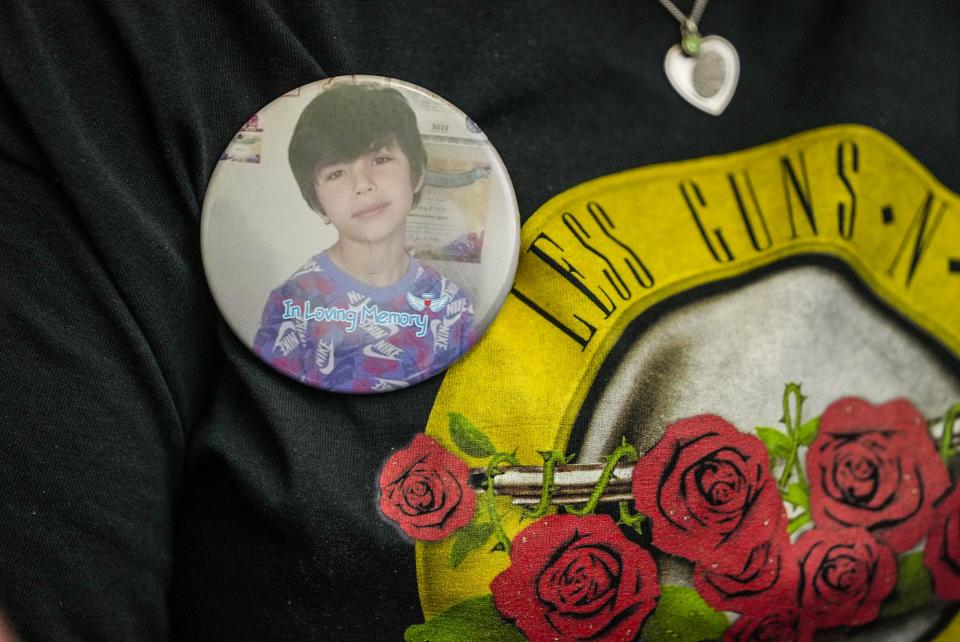Uzi Garcia died in the Uvalde school shooting. His AI-generated voice is calling Congress.
An anti-gun violence campaign is looking to leverage technology to give voice to the voiceless, including a victim of the 2022 Uvalde shooting.
March For Our Lives and Change the Ref, organizations that began in the aftermath of the Parkland shooting that left 17 students dead, have collaborated with families of victims of mass shootings to recreate the voices of those lost. Those families each consented to their child's voice being used to assist in the creation of AI-generated recordings and can use them to call offices of members of Congress.

The group plans to use the recordings in calls to representatives, asking for changes to legislation.
"We have to interrupt people's regularly scheduled programming as a movement to get their attention," David Hogg, the co-founder of March for Our Lives and a survivor of the Parkland shooting, told NPR.
Uvalde shooting victim's AI-generated voice says more calls asking for change will come
Among the victims heard is Uzi Garcia, one of the 21 victims of the Uvalde school shooting. The event was the deadliest school shooting in Texas history.
Dig deeper: Will Uvalde grand jury indict officers who responded to school shooting? Here's how it works
In a minute-long recording, his AI-generated voice details a love for video games, making friends laugh, and spending time with family.
"I'm a fourth grader at Robb Elementary School in Uvalde, Texas," his voice says, "Or at least I was, when a man with an AR-15 came into my school and killed 18 of my classmates, two teachers and me."
The voices continued by saying, "Nothing has changed," and that more shootings have happened. In 2022, the Bipartisan Safer Communities Act was passed after the Uvalde shooting. The legislation was the first major federal gun safety bill passed in nearly 30 years. It expanded background checks on gun buyers 21 and younger, including a review of their mental health and juvenile justice records.
The call notes his voice was recreated with AI and says more calls like theirs will be coming "to demand change."
"I used to love helping people. What is it going to take for you to help make sure violence like this stops happening?"
Garcia's father, Brett Cross, shared a video version of the recording on X, formerly Twitter, on Valentine's Day, noting that after 631 days, his family has been trying to be a voice for his son.
"Today his voice has a message to all, especially our politicians," Cross posted.
Shooting victims can submit a form for AI voice generation creation but are AI calls legal?
The recording of Garcia's AI-generated voice is one of six featured on the campaign's website, TheShotList.org. Families of victims can submit a form seeking to do the same with a lost family member, too.
As of this writing, the website says more than 28,000 submissions have been made.
Last week, a unanimous vote by the Federal Communications Commission made phone calls made using artificial intelligence-generated voices illegal. The statutes of the law tied to calls to landlines vs. mobile devices, calls made by emergency and health services, and more, leave plenty of grey area. That could include using the technology while disclosing recordings were done with permission for advocacy purposes, too.
Congress is weighing several measures tied to the evolving political landscape amid the use of AI for doctored and deep fake content, including a bill that would forbid the use of AI in political advertising.
This article originally appeared on Austin American-Statesman: An Uvalde shooting victim’s AI-generated voice is calling Congress

